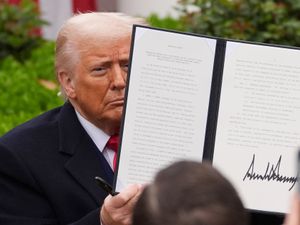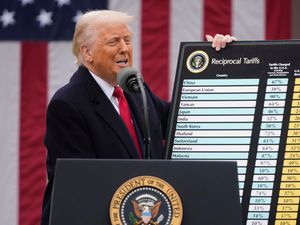Jaguar Land Rover sales blow as UK car figures fall for 12th month in a row
Jaguar Land Rover suffered a slump in sales last month as the national car market fell for the 12th month in a row.
While UK new car sales declined by 16 per cent in March – with demand for diesels continuing to plummet – the West Midlands'-based luxury car maker's figures were even worse, falling by more than a quarter.
The company, which makes its engines at the i54 site in Wolverhampton and its cars at Solihull, Castle Bromwich and Halewood, has already cut production this year with planned shutdowns at some plants.
Last month, sales of Jaguars were down 29 per cent on March 2017, at 6,797, while Land Rover and Range Rover sales were down 26 per cent at 16,655. That's a drop in UK sales of more than 8,600 cars.
Overall some 474,000 new vehicles were registered across the UK in March compared with 562,000 during the same month in 2017, according to the Society of Motor Manufacturers and Traders (SMMT). The Ford Fiesta, Volkswagen Golf and Nissan Qashqai were the top sellers.
The nationwide sales fall was driven by a 37 per cent drop in demand for new diesel cars.
Registrations of petrol cars rose by 0.5 per cent, while demand for alternatively fuelled vehicles such as hybrids and pure electrics increased by six per cent.
The overall market fell by 12 per cent in the first quarter of the year.
SMMT chief executive Mike Hawes said March's decline was "not unexpected" given the huge surge in registrations in the same month last year before changes to vehicle excise duty came into effect.
"The market itself is relatively high, with the underlying factors in terms of consumer choice, finance availability and cost of ownership all highly competitive," he said.
Jim Holder, editorial director of What Car? magazine, said low consumer confidence and uncertainty around the future of diesel vehicles "continue to have an impact" on the industry.
It is "pertinent" that the ongoing drop in diesel sales is not matched by equivalent rises in sales of petrol and electrified cars, he told the Press Association.
"Buyers don't believe that petrol or electrified cars can deliver the performance or economy benefits they need, and so they are holding on to older vehicles for longer," he said.
"That evidence would suggest once again that the Government would do well to clarify its position on diesels and to stimulate people into buying newer, cleaner cars."
Mr Holder added that the sales figures were "not that negative" as it was still the fourth-best March on record.
All new diesels have been subjected to a one-band increase in the first-year vehicle excise duty rate since Sunday.
Plans have also been unveiled to ban the sale of all conventional diesel and petrol cars by 2040.
Justin Benson, head of automotive at auditors KPMG UK, said: "Much like businesses, consumers are currently in the wait-and-see camp, wanting certainty around the economic environment.
"Brexit, concerns over inflation above earnings growth and the Bank of England's hints that they will raise interest rates in the near future are all causing consumers to hold back.
"If you are in the market for a new car, you should drive a hard bargain."




